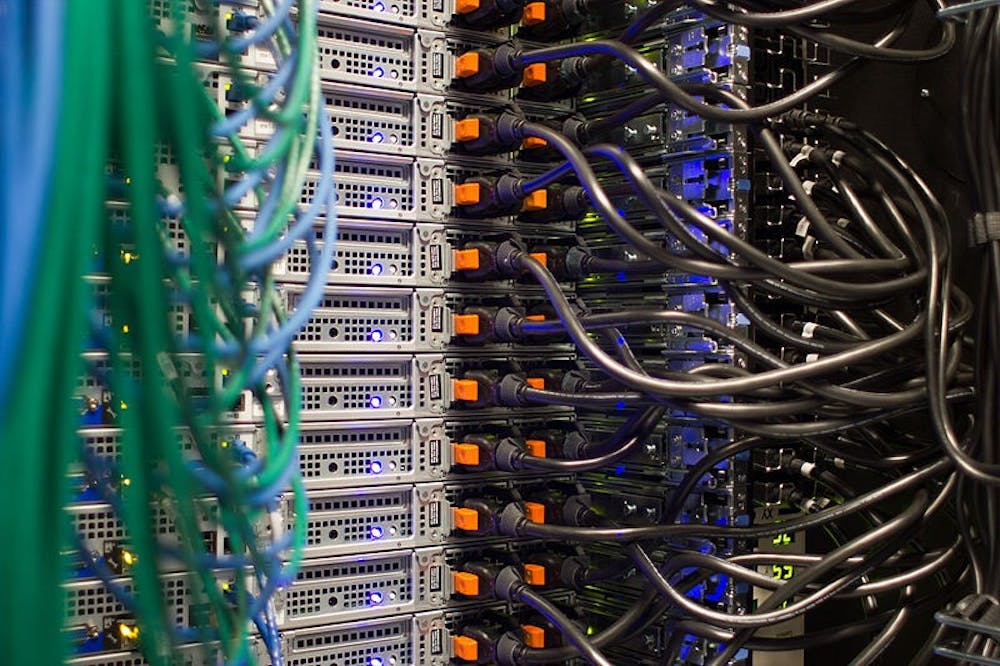After two years of constant debate, on the Tuesday over Thanksgiving break, the Federal Communications Commission (FCC) finally released its plans to repeal the Obama-era net neutrality rules enacted in 2015. This decision may be the most damaging to the American consumer in this nation’s history.
The regulations that will likely be repealed on Dec. 7 classified the internet as a public utility, giving it the same protections as the water or electricity industries. The impetus of this was to protect consumers and companies from “pay-to-play” fast lanes. Fast lanes are a method of prioritizing connection speed for one service over another. In a pay-to-play system, only companies that could afford to pay a premium to an internet service provider (ISP) would be able to access the fast connection, while other companies’ speeds would be artificially slowed down.
While ISPs would still not be legally allowed to fully block content from a user, fast lanes would give them the ability to accomplish the same goal. Let’s use Netflix as an example. The average connection speed in the U.S. is just under 19 Mbps (megabits per second), and on campus it usually hovers around 160 Mbps. Netflix requires 5 Mbps to stream HD content smoothly.
At just a tenth of that speed, consumers might not even be able to access the website at all. Obviously, at some point, a speed would be so slow it could only be seen as censoring. The problem is, a tenth of the speed is still within precedent. ISPs could theoretically throttle down to dial up speeds, or 1/10,000th of the speed necessary for Netflix.
Defenders of the FCC’s decision claim it would not be in an ISP’s interest to limit lanes like this, as it would only turn customers away, and it is thus very unlikely to happen. However, fast lanes give ISPs the ability to monopolize the internet industry with frightening efficiency.
Continuing with the Netflix example, many ISPs already have their own streaming service or are a part of a conglomerate that owns one. Thus, it would be in their interest to throttle all the competition, leaving their service as the only one in the market. Controlling a product as well as the way the overall market of products gets to the consumer is a form of monopoly not seen before.
The alternative for companies, as mentioned above, is to pay premiums to ISPs in exchange for high-speed connection to the consumer. The companies forced to comply would inevitability have to turn around and increase their service’s price. More so than payed services, pay-to-play hurts non-profits and advertisement-based revenue sites. For non-profits, the implications are obvious. Without a revenue system designed for anything beyond sufficiency, they would struggle to continue their presence online with the extra, most likely immense, fast lane costs.
Advertisement-based sites would face a complex snowballing situation that would most likely force them to become payed services. The combination of the extra costs for the advertisers, as well as a diminished reach due to a disappearing number of websites, would drastically drop the revenue a website would receive from an advertisement. This, combined with their own fast lane access costs would either force the site into a pay service or force them to plaster their site with ads to the point where it is not usable. Either of these options would most likely kill the website.
More at risk than any of these examples are startups. Only large, established companies would be able to afford the new fast lane costs. Startups would have no chance in this market. They do not have the ability to spend large portions of their funding on securing fast lane access. Google, Microsoft and Amazon, now the titans of the internet, would not have been able to survive without their free access to the web as startups. Innovation, the core identity of the internet, would not just be stifled. It would disappear.
It is important to note that this is not a partisan issue. Net neutrality has had more bipartisan support than anything else I have experienced in my, albeit short, lifetime. This year, the FCC received over 20 million messages in defense of net neutrality.
In July of this year, according to Freedman Consulting, 77 percent of Americans supported net neutrality, and 81 percent opposed pay-to-play fast lanes. The actions of FCC chairman Ajit Pai, as well as the two other Republicans on the commission who are predicted to vote in favor this December, reveal a complete disregard for the American people.
Furthermore, majority leader of the senate Mitch McConnell and Speaker of the House Paul Ryan have expressed support for repealing net neutrality, along with many other republicans. There seems to be no opposition on Capitol Hill strong enough to stop this reversal. While it technically remains to be voted on, there is no doubt that net neutrality is already dead.
Before the 2018 midterm elections, more damage will have been done than can be fixed. Over the coming months, as the process of repeal progresses, our public officials will reveal where their priorities lie: their party or the American people; corporations or their constituency.
Samuel Farrar is a freshman from Brevard, N.C. He plans to major in political science.





